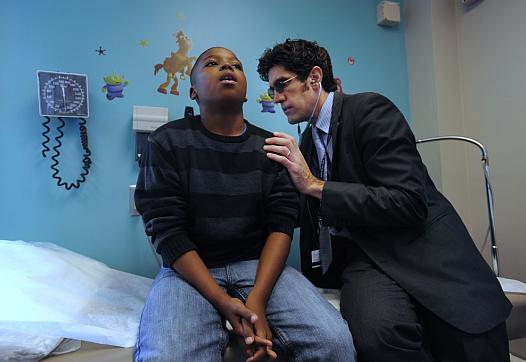
Washington state health officials say they’ll start telling families who’ve lost babies to a devastating birth-defects cluster about genetic studies aimed at decoding possible causes.

Washington state health officials say they’ll start telling families who’ve lost babies to a devastating birth-defects cluster about genetic studies aimed at decoding possible causes.

Washington is among 33 states that don’t have active birth-defects surveillance systems to track problems. It took an astute nurse to raise warnings about a cluster of rare and fatal defects in Central Washington.

The Food and Drug Administration will review a long-delayed petition calling for the voluntary addition of folic acid to corn masa to prevent neural-tube defects such as those seen in Washington’s cluster.

More than 40 mothers have lost babies to a rare and deadly birth defect in three counties in central Washington state since 2010, but the cause remains unknown. Why haven’t health officials and lawmakers done more to find answers?

Detroit has the highest rate of asthma among young children in America’s 18 largest cities, a problem that experts link to urban ills that could affect their health and learning for the rest of their lives.

California's landscape is dotted with huge cattle, dairy and poultry farms from the northern part of the Central Valley all the way to the border areas of San Diego County. Less obvious are the health impacts of such large-scale farms on low-income and communities of color.
Reports of dogs dying after swimming in blue green algae-infested waters in California this summer have raised concerns about the health risks to humans who come into contact with harmful algal blooms. Just how safe are California's waters?

As wells ran dry in the drought-stricken Central Valley this summer, a public health crisis went less noticed. The Fresno Bee's Andrea Castillo decided to focus her reporting on East Porterville, where nearly half the town's 7,500 people have dry wells.

We're happy to announce today that we have a new name and a new look. Our program is now known as the Center for Health Journalism, which better reflects our expanded range of programs and goals.

The federal Food and Drug Administration has agreed to review a long-delayed petition to fortify corn masa flour with folic acid, a move advocates say is crucial to preventing devastating birth defects like those seen in an ongoing cluster of cases in Washington state.